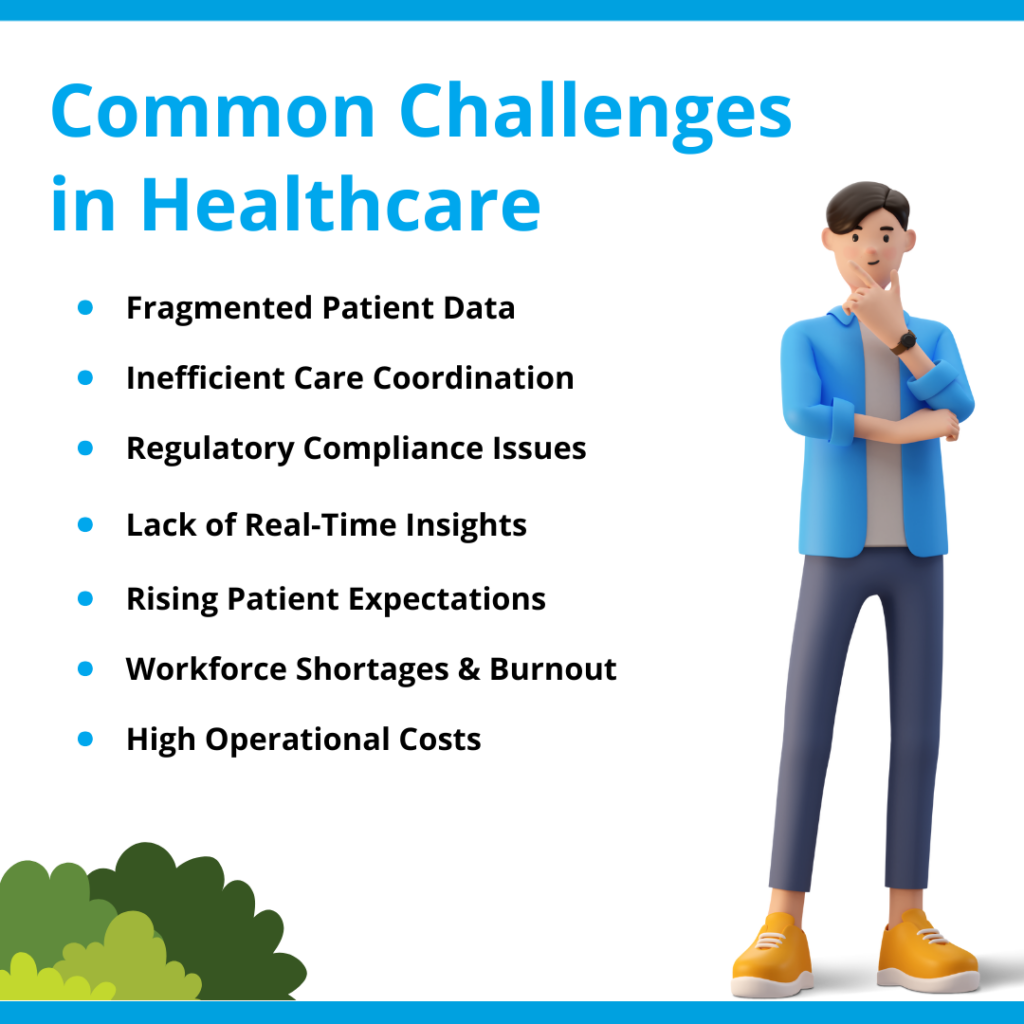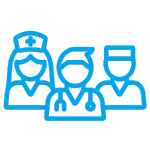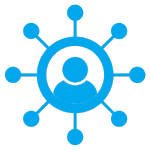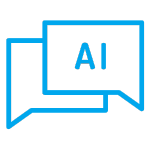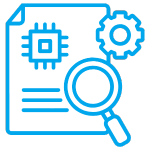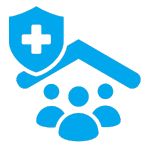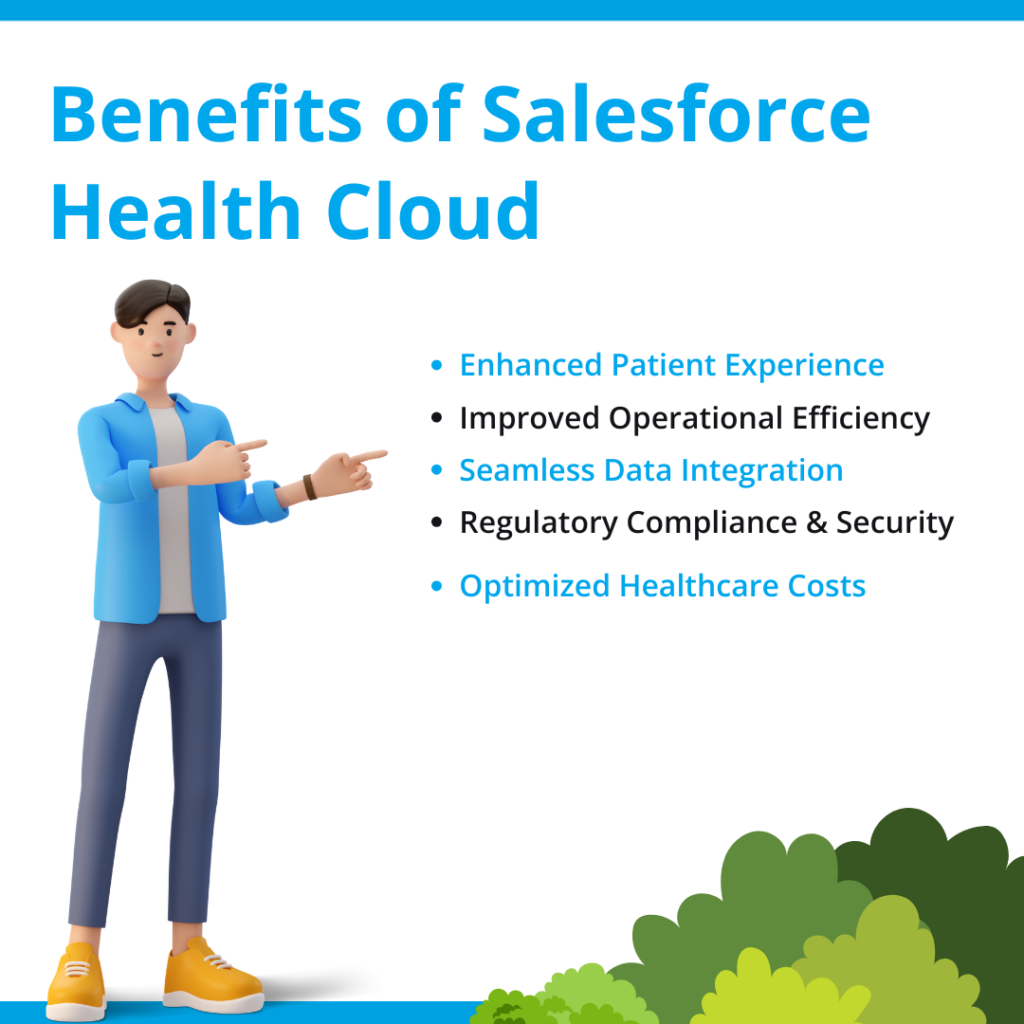
Salesforce Health Cloud – The Future of Healthcare Management
Use clinical and nonclinical data to simplify patient tracking, improve care delivery, and drive operational efficiencies.
Salesforce Health Cloud is a next-generation healthcare CRM designed to help healthcare providers, payers (insurers), and life sciences organizations build stronger patient relationships, improve care delivery, and streamline operations.
Built on the robust Salesforce platform, Health Cloud offers a 360-degree view of patient data, enabling healthcare professionals to access and manage patient information in real time. It integrates with Electronic Health Records (EHRs), wearables, and third-party applications to create a unified patient profile, improving engagement and treatment outcomes.
With AI-powered analytics, Salesforce Health Cloud provides predictive insights that enhance clinical decision-making. Additionally, it supports seamless care coordination among doctors, nurses, caregivers, and administrative staff, ensuring better communication and improved healthcare services.
Common Challenges in Healthcare Life Sciences
Healthcare organizations face multiple challenges that impact patient care, operational efficiency, and regulatory compliance. These challenges can lead to inefficiencies, higher costs, and suboptimal patient outcomes. Here are some of the most pressing issues:
Fragmented Patient Data
Medical data is often scattered across multiple systems such as Electronic Health Records (EHR), pharmacy databases, insurance portals, and laboratory reports. This fragmentation results in incomplete patient records, making it difficult for healthcare providers to get a comprehensive view of a patient’s medical history. It can also lead to duplicate tests, medical errors, and inefficient decision-making.
Inefficient Care Coordination
Effective healthcare relies on seamless collaboration between doctors, nurses, specialists, and administrative teams. However, without a centralized platform, communication gaps arise, leading to delays in treatment, redundant procedures, and errors in patient management. Poor coordination can also affect chronic disease management and post-discharge care, increasing the risk of hospital readmissions.
Regulatory Compliance Issues
The healthcare industry is heavily regulated, requiring organizations to comply with laws like:
- HIPAA (U.S.) – Protects patient health information (PHI) from unauthorized access.
- GDPR (Europe) – Ensures strict data privacy and security for healthcare providers handling patient data.
- Other regional regulations – Different countries enforce data protection laws, making compliance complex for multinational healthcare providers.
Failing to comply with these regulations can lead to legal penalties, reputational damage, and loss of patient trust.
Lack of Real-Time Insights
Healthcare providers need timely and accurate data to make informed decisions. However, many organizations struggle to access real-time insights due to outdated IT infrastructure, data silos, and lack of integration between systems. Without real-time insights, proactive care, predictive analytics, and personalized treatment plans become difficult to implement.
Rising Patient Expectations
Today’s patients demand digital-first healthcare experiences, including:
- Telemedicine – Remote consultations for convenience and accessibility.
- Mobile Health Apps – Appointment booking, medication reminders, and symptom tracking.
- 24/7 Access to Medical Records – Patients want self-service portals where they can view their health data, lab results, and prescriptions anytime.
Meeting these expectations requires healthcare providers to adopt modern digital solutions while ensuring data security and compliance.
Workforce Shortages & Burnout
Healthcare professionals face increasing workloads due to staff shortages, leading to burnout and reduced efficiency. Administrative tasks, such as documentation and insurance processing, take up valuable time that could be spent on patient care. Automation and AI-driven solutions can help streamline these processes, reducing the burden on healthcare workers.
High Operational Costs
Rising costs in healthcare come from multiple sources, including expensive medical equipment, administrative overhead, and compliance-related expenses. Without optimized workflows and cost-effective technology solutions, healthcare providers may struggle to maintain profitability while delivering quality care.
How Salesforce Health Cloud Addresses These Challenges
Salesforce Health Cloud is a powerful healthcare CRM designed to tackle industry-specific challenges by integrating patient data, automating workflows, and enabling seamless collaboration. Here’s how it helps healthcare organizations overcome key obstacles:
Centralizing Patient Data for a 360-Degree View
Salesforce Health Cloud unifies data from various sources, including EHRs, insurance providers, labs, and pharmacies, to create a single, comprehensive patient profile. This ensures:
- A holistic view of patient history, treatments, and prescriptions
- Faster decision-making with accurate and up-to-date data
- Improved coordination between healthcare providers
Automating Workflows to Improve Efficiency
Manual processes can slow down patient care and increase administrative burdens. With Health Cloud, organizations can:
- Automate patient appointment scheduling and reminders
- Streamline insurance claims and billing processes
- Reduce paperwork with AI-driven document management
- Improve case management for chronic care patients
Enhancing Communication Among Healthcare Teams
Effective communication is critical in healthcare. Health Cloud provides:
- Secure messaging between doctors, nurses, and specialists
- Automated task assignments for care teams
- Real-time updates on patient progress
- Collaboration tools for coordinated treatment planning
Enforcing Compliance with Built-in Security Measures
Meeting regulatory requirements is easier with Salesforce Health Cloud, which includes:
- HIPAA-compliant data protection to ensure patient privacy
- Role-based access control to restrict sensitive information
- Audit trails for tracking data usage and ensuring accountability
- Encryption and security protocols to safeguard patient records
Providing Real-Time Analytics for Better Decision-Making
Health Cloud’s advanced analytics and AI-driven insights help providers:
- Identify high-risk patients through predictive analytics
- Monitor patient progress in real-time
- Optimize resource allocation for better efficiency
- Personalize treatment plans based on data-driven recommendations
Offering Personalized Patient Experiences Through Digital Solutions
Modern healthcare requires a patient-centric approach. Health Cloud enables:
- Telehealth integration for remote consultations
- AI-powered chatbots for quick responses to patient queries
- Patient portals for self-service appointment booking and medical record access
- Automated engagement tools to send follow-up reminders and wellness tips
Key Features of Salesforce Health Cloud

Unified Patient 360 View
- Consolidates patient data from EHRs, wearable devices, and healthcare apps.
- Provides a complete medical history for accurate diagnosis and treatment.
- Integrates insurance and billing details for seamless financial management.
- Enhances patient experience with personalized care plans.
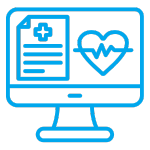
Interoperability & EHR Integration
- Integrates with EHR systems like Epic, Cerner, and MEDITECH.
- Connects with third-party healthcare applications for unified workflows.
- Supports HL7 and FHIR standards for seamless data exchange.
- Automates real-time data synchronization for accurate patient records.
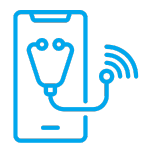
Remote Monitoring & Telehealth
- Enables virtual consultations via secure telemedicine platforms.
- Supports remote patient monitoring through IoT-enabled wearables.
- Sends real-time alerts for abnormal vitals to prevent emergencies.
- Enhances chronic disease management with home-based care solutions.
Benefits of Salesforce Health Cloud
Enhanced Patient Experience
- Provides personalized care using AI-driven insights for tailored treatment plans.
- Enables seamless communication through multiple channels like chat, email, and video calls.
- Offers patient self-service portals for appointment booking and record access.
- Increases patient engagement with proactive health reminders and follow-ups.
Improved Operational Efficiency
- Automates administrative workflows, reducing manual data entry and paperwork.
- Streamlines care coordination with centralized task management for teams.
- Enhances scheduling and appointment management for optimized resource use.
- Reduces delays and improves response times with real-time data access.
Seamless Data Integration
- Connects EHRs, medical devices, and healthcare applications for a unified patient record.
- Synchronizes real-time data across systems to improve decision-making.
- Eliminates data silos, ensuring healthcare providers have complete patient histories.
- Enhances interoperability with support for HL7, FHIR, and other industry standards.
Regulatory Compliance & Security
- Ensures compliance with HIPAA, GDPR, HITRUST, and other healthcare regulations.
- Implements robust encryption and access controls to protect patient data.
- Provides automated audit logs for tracking and monitoring data access.
- Reduces the risk of data breaches and unauthorized access to sensitive records.
Optimized Healthcare Costs
- Reduces manual errors in billing, claims, and administrative processes.
- Enhances resource utilization by optimizing staff workloads and schedules.
- Lowers operational expenses through workflow automation and AI-driven insights.
- Minimizes unnecessary hospital visits with proactive remote monitoring solutions.
Salesforce Health Cloud for Your Industry Segment
Salesforce Health Cloud is a versatile platform that provides tailored solutions for various healthcare sectors, ensuring enhanced efficiency, compliance, and patient satisfaction. Here’s how it benefits different healthcare industry segments:
Hospitals & Clinics (Providers)
- Patient Management: Streamlines the process of managing patient records and appointments.
- Clinical Workflows: Integrates data across departments, improving workflow coordination between clinicians, nurses, and administrative staff.
- Appointment Scheduling: Automates appointment bookings and reminders, reducing no-shows and optimizing provider availability.
- Care Coordination: Facilitates communication across teams for more comprehensive and efficient care.
Health Insurance (Payers)
- Member Engagement: Enhances communication with policyholders through omni-channel tools, improving member experience and retention.
- Claims Processing: Automates and speeds up claims processing, reducing errors and administrative costs.
- Fraud Detection: Uses AI and machine learning to detect anomalies in claims, helping to prevent fraud and reduce financial losses.
- Risk Assessment: Provides actionable insights into member health risks, enabling proactive care management.
Pharmaceutical & Life Sciences
- Drug Commercialization: Accelerates the process of bringing new drugs to market with real-time collaboration and regulatory compliance tracking.
- Clinical Trials: Facilitates patient recruitment, management, and monitoring for clinical trials, ensuring compliance and timely results.
- Regulatory Compliance: Simplifies the management of regulatory requirements across various regions, keeping drug developers aligned with industry standards.
- Research Collaboration: Provides tools to manage research data, collaborate across teams, and drive innovation.
Medical Device Companies
- Real-Time Patient-Device Interactions: Enhances monitoring of patient health using connected devices, providing immediate feedback and care alerts.
- Post-Market Surveillance: Tracks the performance of medical devices post-sale, improving product safety and effectiveness.
- Patient Outcomes: Uses data analytics to monitor patient outcomes and optimize device performance.
- Regulatory Compliance: Ensures adherence to medical device regulations, improving product quality and safety.
No matter the healthcare segment, Salesforce Health Cloud empowers organizations to increase operational efficiency, meet compliance standards, and improve patient care and satisfaction. Whether it’s simplifying hospital workflows, enhancing payer services, supporting pharmaceutical research, or advancing medical device safety, Health Cloud is a powerful tool for every healthcare provider.
Implementing Salesforce Health Cloud
Salesforce Health Cloud can transform patient care and streamline healthcare operations. A successful implementation requires a structured approach. Here’s a concise guide to ensure a successful deployment:
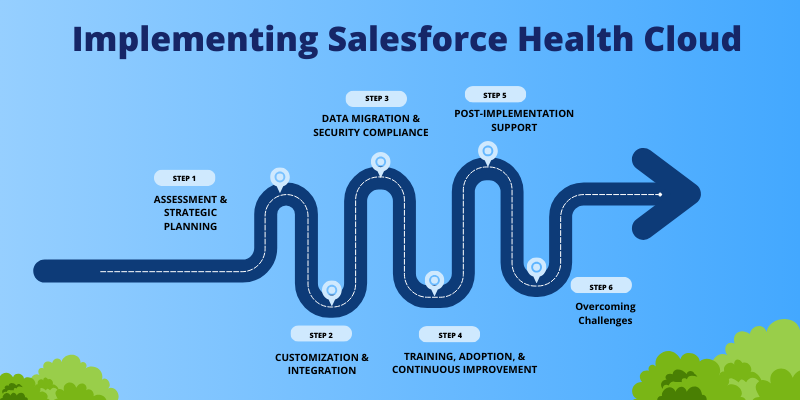
1. Assessment & Strategic Planning
- Evaluate Current State & Identify Gaps: Analyze existing systems and workflows to identify areas where Health Cloud can provide the most value.
- Define Objectives & Success Metrics: Set measurable goals (e.g., improving patient engagement, reducing no-shows) and track progress with KPIs.
- Stakeholder Engagement: Involve key staff early to ensure alignment and better adoption.
2. Customization & Integration
- Tailor Workflows & Dashboards: Customize for different user needs (care coordinators, physicians) to enhance efficiency.
- Seamless Integration: Integrate Health Cloud with existing EHR, billing, and other systems to ensure smooth data flow.
- Support Real-Time Data Sharing: Implement interoperability standards for real-time sharing of patient information.
3. Data Migration & Security Compliance
- Data Migration: Develop a plan for migrating and validating legacy data.
- Data Governance & Security: Maintain strict data governance protocols and ensure compliance with HIPAA and GDPR.
4. Training, Adoption, & Continuous Improvement
- Training: Provide role-based training and ongoing support for staff.
- Feedback & Iteration: Use pilot programs and collect feedback for continuous system improvement.
5. Post-Implementation Support
- Monitor Performance: Use built-in analytics to assess system impact and improve patient care.
- System Updates: Regularly update the system and share best practices to optimize Health Cloud.
- Track ROI: Measure ROI through reduced costs, improved patient satisfaction, and better outcomes.
6. Overcoming Challenges
- Legacy System Integration: Plan for compatibility with existing systems to avoid disruptions.
- Customization vs. Standardization: Balance tailored solutions with Salesforce’s best practices for sustainability.
- User Adoption: Engage users early to encourage smooth adoption and confidence in the system.
Why Choose Dhruvsoft for Salesforce Health Cloud Implementation
Dhruvsoft is a trusted Salesforce implementation partner specializing in healthcare CRM solutions. With deep industry expertise and a proven track record, Dhruvsoft delivers customized, scalable solutions that not only streamline operations but also enhance patient engagement and care outcomes. Their dedicated approach ensures that every implementation is aligned with your unique business needs, providing seamless integration, robust security, and ongoing support for long-term success.
- Expertise in Healthcare CRM:
Dhruvsoft has extensive experience implementing Salesforce Health Cloud for hospitals, insurers, and life sciences companies. Their deep understanding of healthcare challenges allows them to deliver solutions that truly address the needs of patient care and operational efficiency. - Custom-Tailored Solutions:
Recognizing that no two healthcare organizations are alike, Dhruvsoft offers personalized configurations designed to match your specific workflows and requirements. This customization ensures that the solution not only fits into your existing processes but also enhances them, driving better outcomes. - Seamless EHR & Third-Party Integrations:
To maximize efficiency and data integrity, Dhruvsoft specializes in integrating Salesforce Health Cloud with existing systems, including Electronic Health Records (EHRs), billing, and other healthcare applications. This integration facilitates smooth data exchange, reduces manual entry errors, and supports real-time decision-making. - Proven Success Stories:
Dhruvsoft has a portfolio of successful implementations that have delivered measurable improvements in patient engagement, operational efficiency, and ROI. Their track record demonstrates their ability to transform healthcare organizations by leveraging Salesforce Health Cloud effectively. - Dedicated Support & Training:
Beyond implementation, Dhruvsoft provides ongoing support and comprehensive training for your team. Their end-to-end service includes guidance on best practices and continuous system updates, ensuring your staff can fully leverage the platform’s capabilities. - Robust Security & Compliance:
Understanding the critical nature of patient data, Dhruvsoft ensures that every implementation adheres to stringent security standards and regulatory requirements such as HIPAA and GDPR. This commitment to data protection builds trust and safeguards your organization against compliance risks. - Scalability and Innovation:
Dhruvsoft designs Salesforce Health Cloud solutions with scalability in mind. As your organization grows and the healthcare landscape evolves, your customized platform will continue to support your changing needs and drive ongoing innovation.
With Dhruvsoft as your implementation partner, your healthcare organization can achieve a smooth transition to Salesforce Health Cloud, resulting in faster ROI, improved operational efficiency, and enhanced patient care delivery.
Future Trends in Healthcare CRM & Salesforce Health Cloud
As the healthcare industry continues to evolve, several emerging trends are shaping the future of healthcare CRM systems like Salesforce Health Cloud. These innovations aim to enhance patient care, streamline operations, and improve healthcare outcomes. Here are the key trends to watch for:
AI-driven Diagnostics & Predictive Analytics:
Artificial intelligence (AI) is set to revolutionize healthcare by assisting with early disease detection and providing personalized treatment recommendations. With predictive analytics, healthcare providers can anticipate health risks and take proactive measures, improving patient outcomes. Salesforce Health Cloud will leverage AI to enhance decision-making, streamline care delivery, and provide tailored solutions for patients based on their health data.
Expansion of Telehealth & Virtual Care:
The demand for remote consultations and digital healthcare services has skyrocketed, especially post-pandemic. Virtual care platforms allow healthcare providers to consult with patients from any location, reducing the strain on physical healthcare facilities. Salesforce Health Cloud will continue to expand its telehealth capabilities, ensuring seamless video consultations, remote monitoring, and virtual care delivery as part of a holistic patient care experience.
Blockchain for Secure Patient Data:
As cybersecurity becomes a growing concern in healthcare, blockchain technology will offer a new layer of security for patient data. With blockchain, patient records can be stored in a decentralized, immutable manner, ensuring transparency, data integrity, and secure sharing across healthcare providers. Salesforce Health Cloud will integrate blockchain to improve data security, ensuring compliance with regulations like HIPAA and GDPR while offering patients control over their health information.
Greater Integration with Wearables:
With the rise of wearable devices like fitness trackers, smartwatches, and medical-grade wearables, real-time monitoring of patient vitals is becoming more common. These devices collect critical health data such as heart rate, blood pressure, and sleep patterns. Salesforce Health Cloud will expand its capabilities to integrate with these devices, enabling healthcare providers to track patient health continuously and make more informed decisions based on real-time data.
As these trends continue to shape the future of healthcare, Salesforce Health Cloud is poised to evolve and incorporate these innovations. By staying at the forefront of these technological advancements, healthcare organizations can ensure they remain competitive, improve patient care, and adapt to the rapidly changing landscape of the healthcare industry.
FAQs on Salesforce Health Cloud
What is Salesforce Health Cloud?
Salesforce Health Cloud is a patient relationship management platform designed to help healthcare providers deliver personalized care by connecting patients, caregivers, and medical teams through a unified platform.
How does Salesforce Health Cloud improve patient care?
It offers a comprehensive view of each patient’s health history, medical records, and real-time interactions, enabling healthcare providers to deliver more coordinated and personalized care.
Can Salesforce Health Cloud integrate with electronic health records (EHR) systems?
Yes, Salesforce Health Cloud integrates with most EHR systems, ensuring that patient data is unified across platforms for improved care coordination.
Is Salesforce Health Cloud suitable for small healthcare practices?
Yes, Salesforce Health Cloud is scalable and customizable, making it suitable for healthcare organizations of all sizes, including small practices and large medical institutions.
How does Salesforce Health Cloud enhance collaboration among healthcare teams?
It enables seamless communication and collaboration among doctors, nurses, caregivers, and other healthcare professionals, ensuring that everyone is on the same page regarding patient care.
What features are included in Salesforce Health Cloud?
Key features include patient profiles, care coordination tools, integrated health data, AI-driven insights, and secure communication channels to improve patient management and healthcare outcomes.
Can Salesforce Health Cloud help with compliance?
Yes, Salesforce Health Cloud helps healthcare organizations comply with regulations such as HIPAA by providing robust security measures and encryption for patient data.
Can Salesforce Health Cloud integrate with other Salesforce products?
Yes, Salesforce Health Cloud integrates with other Salesforce products, including Sales Cloud, Service Cloud, and Marketing Cloud, to provide a seamless experience across the healthcare ecosystem.
What kind of security does Salesforce Health Cloud provide?
Salesforce Health Cloud follows strict security protocols to ensure patient data is protected, including role-based access, encryption, and compliance with healthcare regulations like HIPAA.
How does Dhruvsoft support the implementation of Salesforce Health Cloud?
Dhruvsoft provides end-to-end support for implementing Salesforce Health Cloud, including assessment, customization, integration, training, and ongoing monitoring to ensure a successful deployment and improved healthcare outcomes.
Start Your Salesforce Health Cloud Project
Ready to enhance patient care and streamline your healthcare operations? Contact our Salesforce Health Cloud experts at Dhruvsoft for a free consultation and take the first step toward a smarter, more connected healthcare system!
